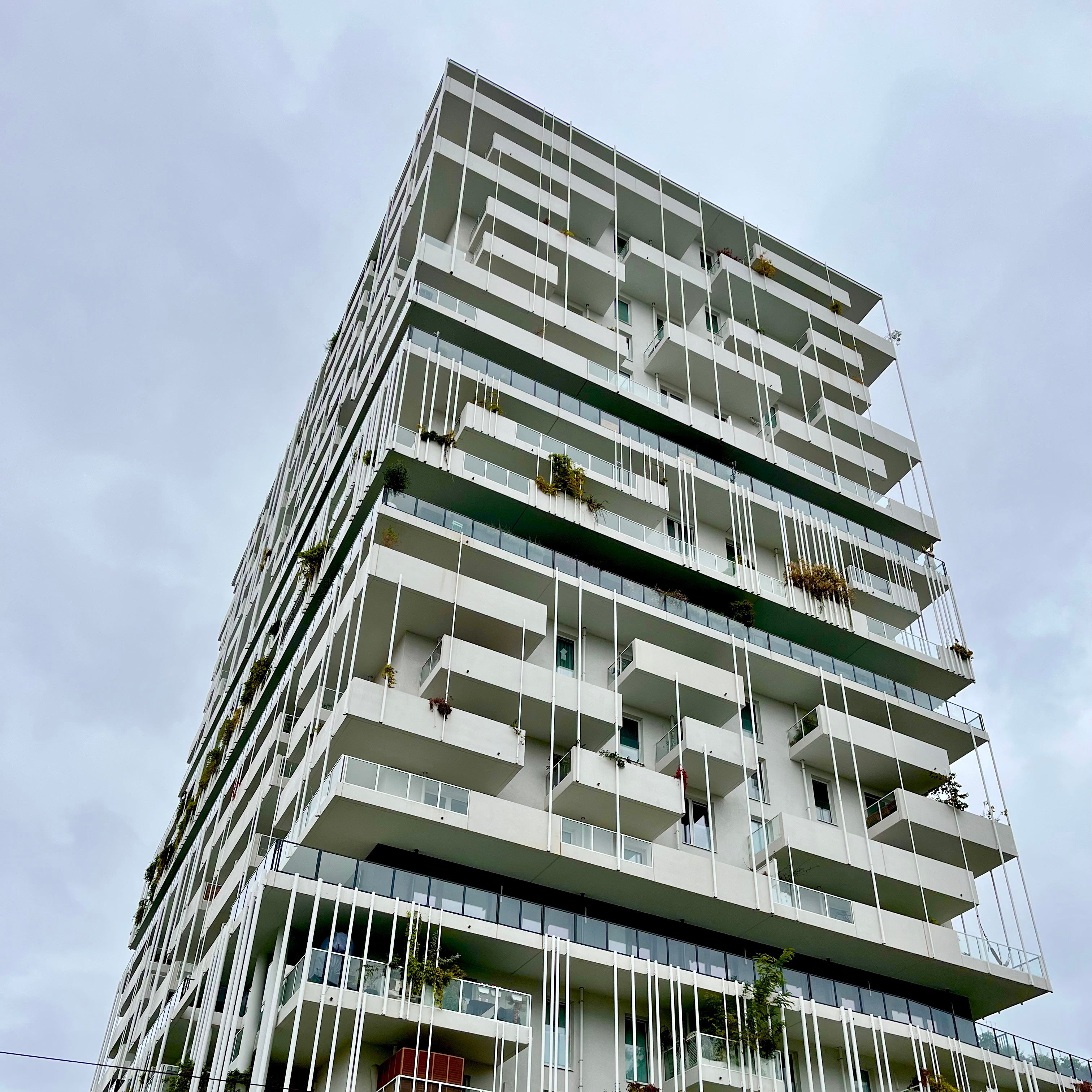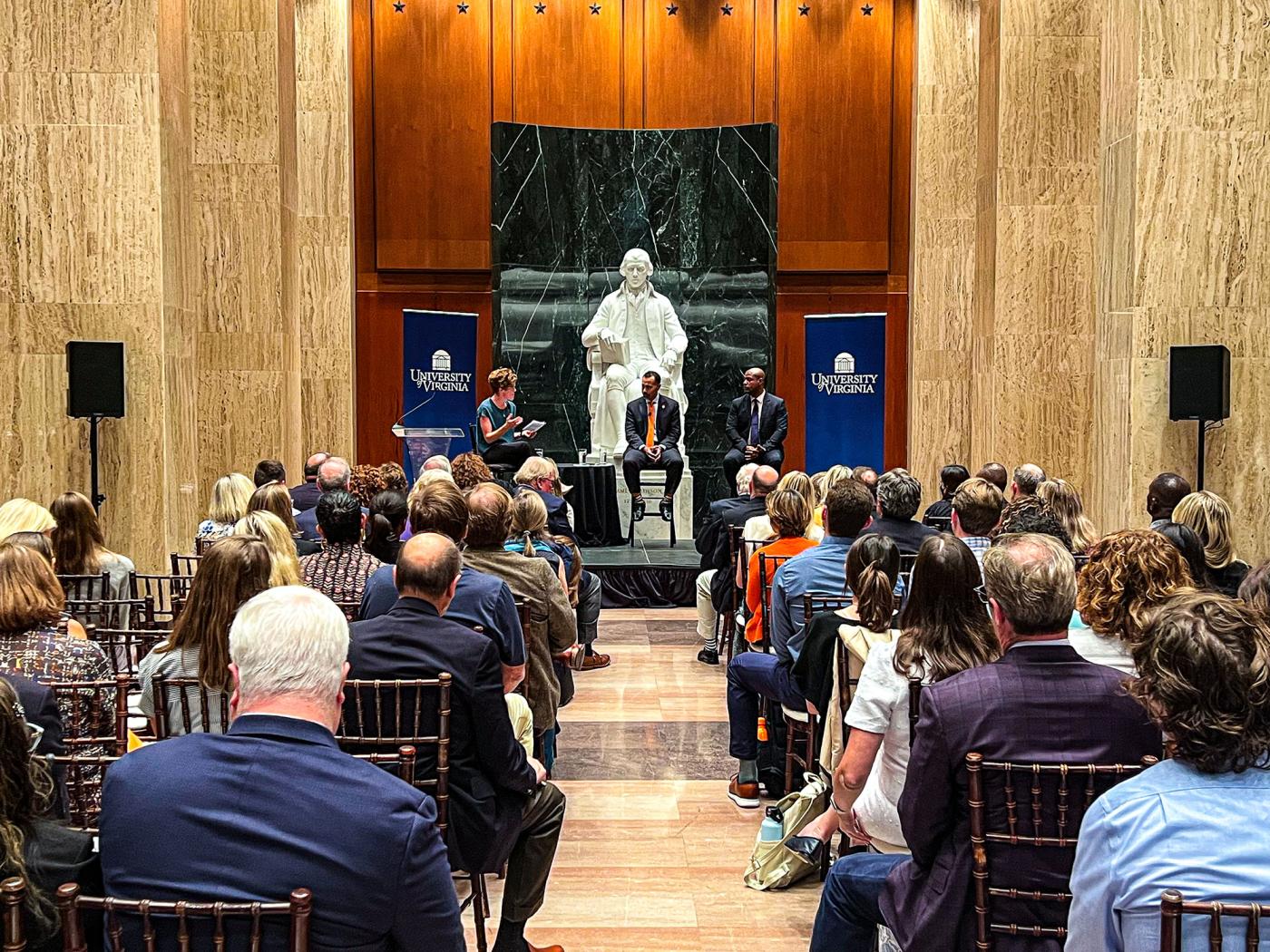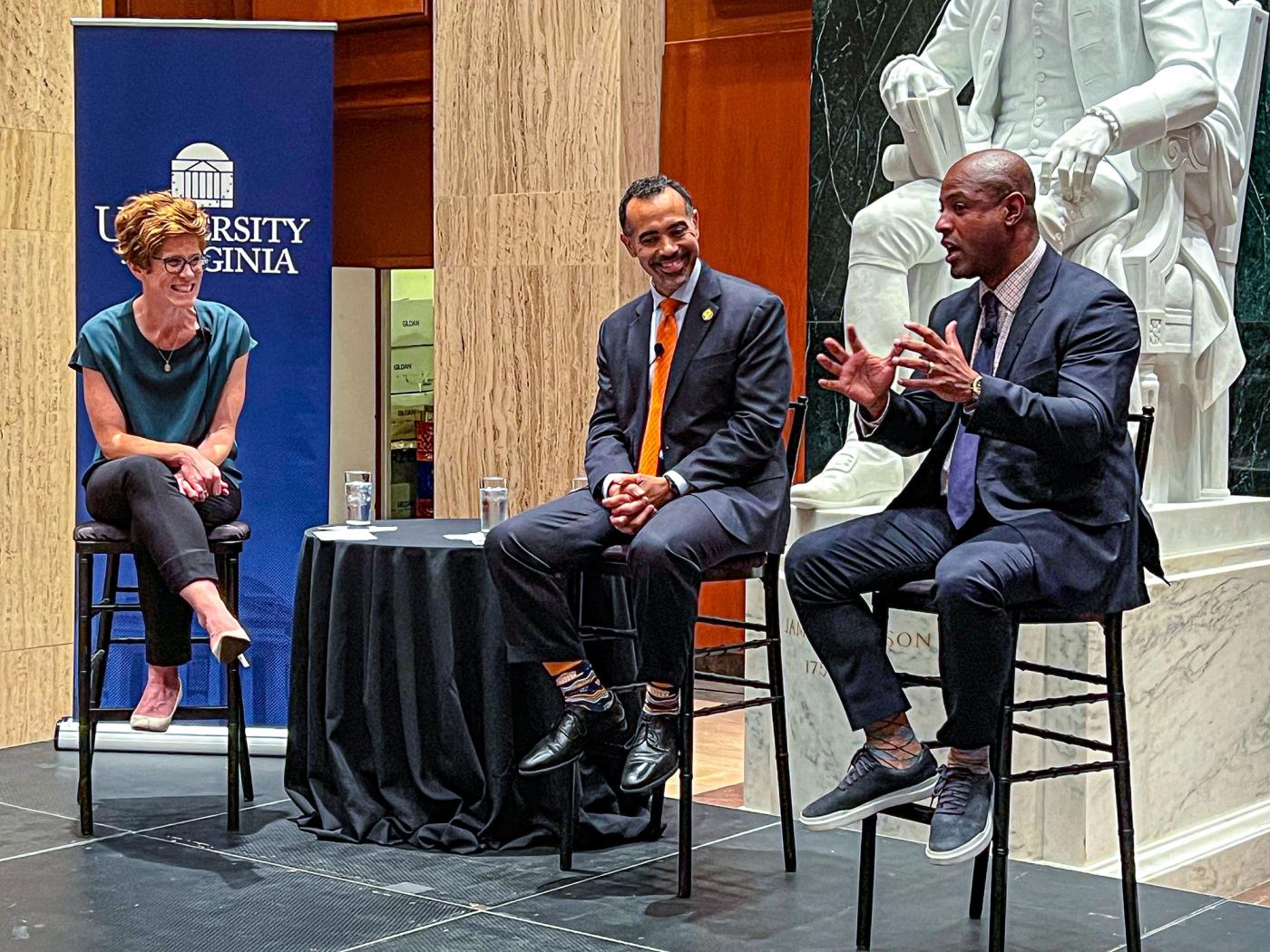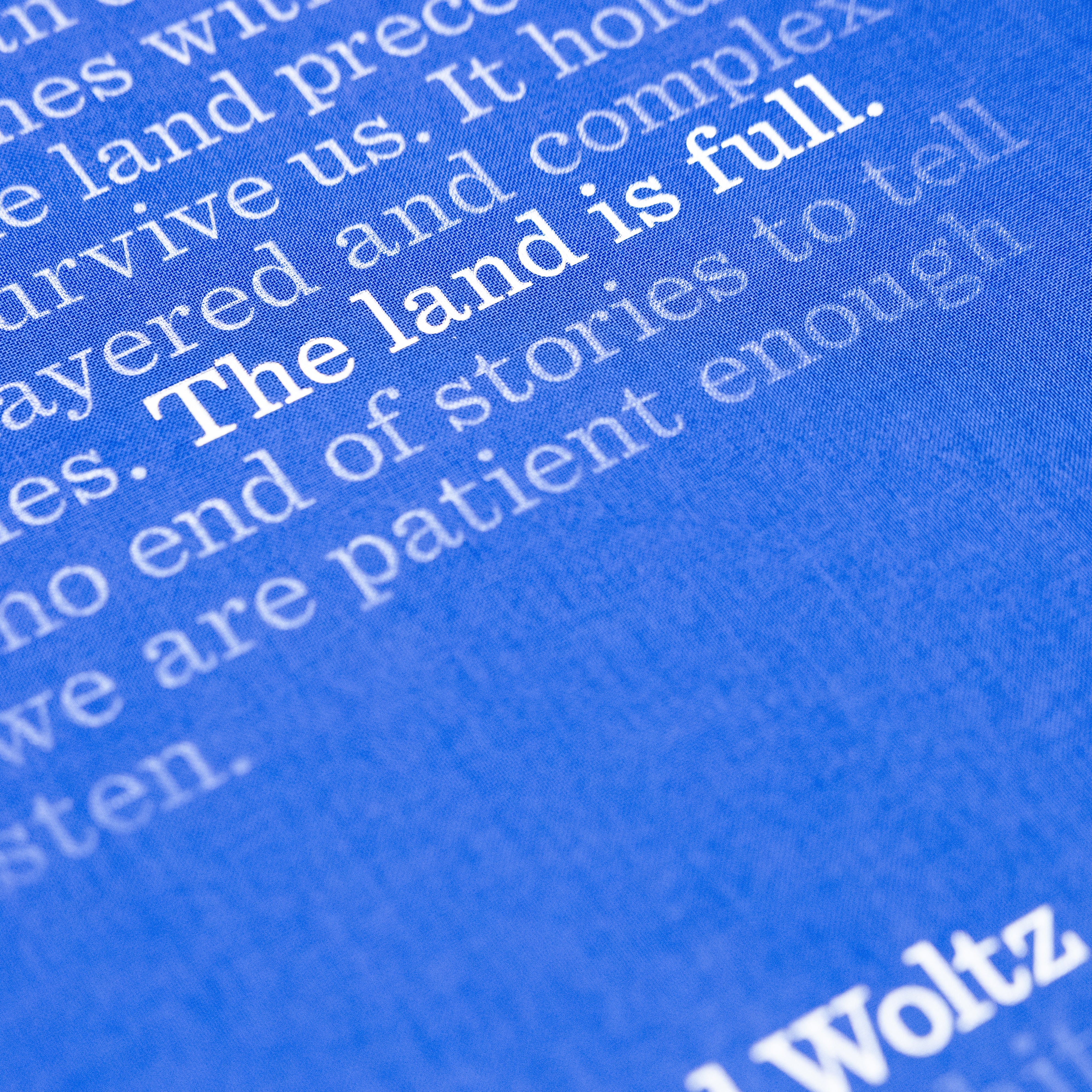
DEAN HUTSON AND DEAN SOLOMON DISCUSS SHAPING TOMORROW'S LEADERS FEATURE

Last month, an unassuming Thursday evening in September turned into a magical night for UVA alumni and friends who gathered in the inspiring James Madison Memorial Building in Washington, D.C’s Library of Congress. Individuals gathered to hear two of the University’s leaders, Dean Malo A. Hutson (School of Architecture) and Dean Ian H. Solomon (Frank Batten School of Leadership and Public Policy) discuss the role higher education in real world transformation.
Expertly moderated by alumna Annie Rorem (MPP ’13), Chief of the Federal Research Division at the Library of Congress, and graciously introduced by architect and alumnus David Haresign, FAIA (BSArch ’76), Hutson and Solomon captivated the audience by bouncing back and forth between critical pressing topics such as democracy and climate change, while bringing levity to the event through laughter and infectious enthusiasm.
The program, hosted by UVA’s Office of Engagement, focused on the ways in which higher education can create substantial, meaningful change that resonates beyond campus boundaries. The setting was an opportune and profound one, tied for over 200 years to the cultivation of knowledge. The Library of Congress was founded in 1800, making it the oldest federal cultural institution of the nation. Fifteen years later, Congress approved the purchase of Thomas Jefferson’s personal library, and now in 2023, it is the largest library in the world with millions of books, films, videos, audio recordings, photographs, newspapers, maps, and manuscripts in its collection.

Rorem kicked off the discussion by asking Hutson and Solomon to reflect on how institutions of higher education can make an impact on society. Solomon shared, “Creating knowledge is a long-term project, [and] if it is subject to our short-term political attention span, we will never learn the lessons of the past, [and] we will never really move forward.” He explained how universities are places were young individuals are cultivated into discerning citizens, which Hutson elaborated upon, describing the university’s role in educating the next generation of “critical thinkers and citizen leaders.” Both articulated how the university has a role as a convener, a place where groups of people with different views, can share and debate ideas, respectfully.
When asked to reflect on how institutions, often critiqued as “ivory towers” can transition knowledge to meaningful action, both deans reflected on their respective school’s direct connection to practice and professional training. Whether across public policy and leadership, or the design and planning disciplines, both Batten and the School of Architecture focus on applied knowledge. In this way they are also cultivating strong partnerships outside of the university: “You have to bring the public in[to] the university — that is one of the things I love about UVA, it’s a public institution,” said Hutson. Centering the public realm, and the issues society is facing, grounds the important theoretical aspects of higher learning and opens a multi-directional exchange of ideas.
The conversation then turned to humility and complexity when addressing how higher education may address climate change. Dean Hutson emphasized how, at the School of Architecture, faculty and students ask what kinds of knowledge, methodologies, and skillsets they can bring to these complex and difficult issues. In part, that includes a disciplinary approach that invests deeply in the local condition — and the impact of climate in everyday lives and spaces — while examining across scales and geographies. As he described, “Climate pollution is going to cross lines, so we have to think [and work] from a regional perspective, from a state-level perspective, and the federal level, but we cannot ignore local issues.” Dean Solomon said of this “epic challenge” that it is “a challenge of cooperation, a challenge of information, a challenge of conflicting interest” and one that requires humility and the capacity to rigorously analyze a situation across many possible solutions.

The characteristic of humility remained a throughline when shifting to leadership — how leadership is taught and how it is demonstrated at UVA. Solomon talked about how when he thinks about leaders that he admires, they are individuals who are empathetic and self-aware of their own weaknesses, explaining, “We are highly imperfect…[but we can understand how to mitigate our own] decision-making process so that [we] don’t exacerbate problems for others.” Hutson described how there are many ways to lead, and that this is something he reiterates to students. He emphasizes to students that when they think about their futures and about their careers, regardless of whether they end up working for a small private firm or a large cultural organization, the federal government, or a start-up, it is important to reflect on the foundational question: “How am I a contributor in my own way?” He is energized and motivated by the School of Architecture’s student cohort at UVA because he interacts with them regularly and learns directly from them about their goals and pursuits. He noted, “[Our students] are driven by something bigger than themselves.”
Both deans agreed that this is part of the UVA DNA. In part stewarded by the unique and long-lasting role of student governance at the University of Virginia, and in part celebrated by the sense of citizenry that brought the evening’s conversation full circle, knowledge and action shape the UVA community. Solomon eloquently said, “I think of leadership as action that empowers a community to achieve something that is important to them.” Among an engrossed audience that was not ready for the program to end, as the lights dimmed in the Library of Congress’s spectacular Madison Building, Dean Hutson and Dean Solomon left fellow UVA alumni and friends uplifted by and reminded of the transformative power of higher education.
Special thanks to the Office of Engagement for hosting this event.


